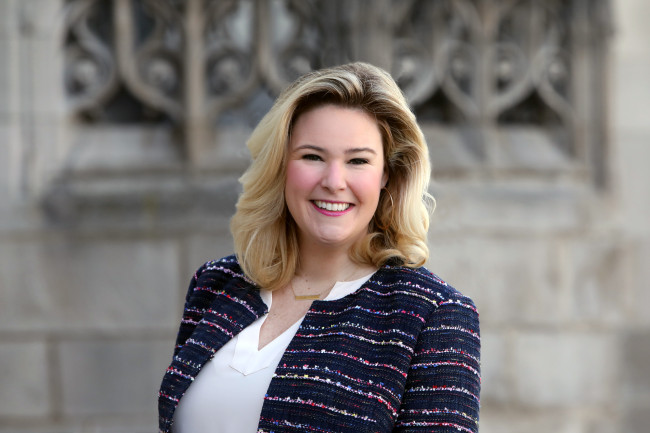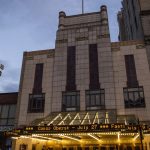Scranton Cultural Center announces new Director of Development Betsy McGrath Ardizoni

From a press release:
Today, the board of directors of the Scranton Cultural Center at the Masonic Temple and its executive director, Deborah Moran Peterson, announced Betsy McGrath Ardizoni as the organization’s director of development. Ardizoni joined the Scranton Cultural Center as its development director in January.
“As the organization embarks on capital projects to preserve and renovate aspects of the building, a capital improvement plan is paramount for long term projects. Betsy’s past experience in fundraising, event planning, and corporate marketing will help us move strategically in the direction needed,” Peterson said.
“We are thrilled to have her as a member of the team at the SCC.”
Born and raised in Scranton, Ardizoni earned her bachelor of arts degree in labor studies and employment relations from Pennsylvania State University, as well as an Executive Event Leadership Certificate from Temple University. Prior to joining the Scranton Cultural Center, she worked in the Marketing Communications Department at the Wright Center for Community Health and with Governor Ed Rendell during his time as chairman of the 2016 Democratic National Convention in Philadelphia.
Ardizoni is a graduate of the Leadership Lackawanna Core Program Class of 2020 and serves on the board of directors at the Greater Scranton YMCA. She resides in Dunmore with her husband, Guy.
This year marks the 90th anniversary of the opening of Scranton’s historic Masonic Temple, which has served as the home of the Scranton Cultural Center for over three decades. Although the facility is currently closed due to government guidelines regarding the coronavirus pandemic, the organization has been celebrating this monumental milestone online through social media.
“Before the pandemic outbreak, we were brainstorming ideas for an on-site celebration because we believe our building doesn’t just belong to us, but the entire community,” Peterson said.
“Now, we’ve opted to shift our celebration to the digital sphere as a way to look back on 90 years of history and bring the community together during a time when we all need it the most.”
The virtual 90th anniversary celebration kicked off on May 18, which marked the official anniversary of the building’s opening in 1930.
The Scranton Cultural Center is housed in one of the most glorious pieces of architecture to be found in Scranton. Originally built as the Masonic Temple and Scottish Rite Cathedral, the building is significant as an example of the work of Raymond M. Hood (1881-1934), a prominent architect of the 1920s and early 1930s, and as a unique example of Neo-Gothic architecture in Scranton.
At approximately 180,000 square feet, the building houses two theaters, meeting rooms, and a grand ballroom, as well as numerous other rooms and areas. Over time, the Masonic Fraternity realized the need to utilize the facility in other collaborative ways, so a grassroots effort was launched to form a not-for-profit organization. The Scranton Cultural Center at the Masonic Temple remains dedicated to the preservation and improvement of the structure and to provide an ongoing programming resource for the community.
The unique partnership of the communities of Northeastern Pennsylvania and the Masonic Fraternity has proven successful and beneficial to all parties. Today, the SCC operates the facility as a regional performance and cultural hub. It serves as the residence for national tours of Broadway musicals and concerts and hosts a variety of many other national and regional artists, including memorable performances by Frank Sinatra, Rob Zombie, A Perfect Circle, Yul Brynner in “The King and I,” George Carlin, NSYNC, Britney Spears, Barry Manilow, Billy Joel, Willie Nelson, Doc Watson, and Bela Fleck. It also has kept to its earliest purposes by continuing to serve as the center of Masonic activity in the region.
The Scranton Cultural Center’s mission is to rejuvenate a national architectural treasure as a regional center for the arts, education, and community activity appealing to all. It is also committed to offering arts-integrated experiences to the regional school districts, home school groups, and charter schools, as well as the community at large.



